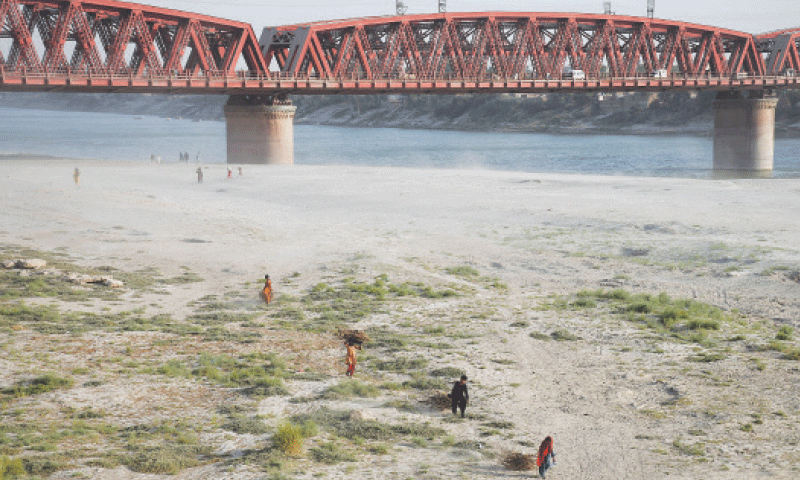

THE United States and the World Bank may intervene to prevent the complete breakdown of the Indus Waters Treaty (IWT), which has survived wars, near-conflict, and complete diplomatic breakdowns in the past as well. The treaty, signed in 1960 after nine years of negotiations between the two neighbours, divided the waters of the six rivers of the Indus Basin between them, with India receiving the three eastern rivers (the Ravi, Beas, and Sutlej).
Meanwhile, Pakistan obtained control of the three western rivers (Indus, Jhelum, and Chenab), which account for almost 80 per cent of the water flowing through the basin.
Incidentally, the World Bank-brokered treaty has no provision for suspension, and can only be modified by mutual agreement.
Experts and analysts suggest that Washington and the World Bank may get involved behind the scenes to preserve the treaty and avert a wider crisis.
“The Trump administration is likely inclined to give India rather wide latitude in retaliating against Pakistan,” said Joshua White, a former senior advisor to the White House on South Asian affairs.
Officials see New Delhi’s decision as ‘political’; fear no immediate impact as India lacks infrastructure to stop water flows
“But I suspect that both the US government and the World Bank will work quietly to prevent a complete rupture of the treaty.”
Mr White, who previously served at the White House as senior advisor & director for South Asian Affairs at the National Security Council, pointed to a similar crisis after the 2016 Uri attack, when India threatened to withdraw from the treaty.
“This was taken by some in the Biden administration and the World Bank as a credible threat, but ultimately India decided that it wasn’t practical or beneficial to abrogate the agreement, though it did begin to take more assertive actions to maximise its rights under the treaty.”
“India may [however,] be willing to assume more risk after this recent attack than it did in 2016 —suspending not only data-sharing, but taking steps that could ultimately diminish water flows to Pakistan,” he added.
‘Water warfare’
After India’s unilateral action, there are apprehensions regarding the flow of rivers given to Pakistan.
Syed Mehr Ali Shah, Pakistan’s Indus Water commissioner, said New Delhi’s decision to hold the treaty in abeyance is “political”.
Experts feel the decision may not cause any immediate or severe impact on Pakistan’s share of water.
This is mostly because India has little to no infrastructure that could allow it completely stop the flows of western rivers. Water coming into Pakistan can only be impacted if New Delhi immediately starts constructing dams, in violation of the treaty.
Dr Hassan Abbas of the National Defence University in Washington warned of grave humanitarian consequences if India tried to block the three rivers.
“Water warfare,” Mr Abbas said, can have a “devastating impact on the lives of ordinary people in South Asia”.
“While immediate large-scale water diversion is unlikely due to infrastructural constraints, the messaging is provocative — threatening Pakistan’s agriculture and food security, especially amid existing climate challenges.”
On the broader risks, he added the threat of escalation between two nuclear powers. “Any miscalculations can lead to devastating consequences. It’s crucial for both sides to exercise restraint. Diplomacy, not brinkmanship, is the only viable path.”
Asked if Trump would be willing to play a role in defusing the situation, Mr Abbas said it is “likely”.
“The US has played a constructive role in such situations many times in the past, but it’s India and Pakistan who need to resolve issues — and tragically they have repeatedly shown that they are incapable of that.”
In a briefing on Thursday, US State Dept spokesperson Tammy Bruce also touched the crisis brewing in South Asia.
“It’s a rapidly changing situation and we are monitoring it closely… We are not now taking a postion on the status of Kashmir or Jammu,” she said, adding that this was all she had to say on the subject.
More reservoirs
Latif Javed, a former member of the Water and Power Development Authority (Wapda), said Pakistan must approach the World Bank against India’s unilateral decision to suspend the treaty.
He added India’s decision was not unexpected since it was “already threatening to do so”.
Mr Javed expressed the apprehension that India might disrupt the flow of the three rivers given to Pakistan.
He urged the government to speed up the construction of Diamer Bhasha, Dasu and Mohmand dams, besides planning for more water reservoirs, including the contentious Kalabagh Dam and a reservoir to store water of hill torrents in Balochistan.
Despite India’s suspension of the treaty, the IWT contains mechanisms for dispute resolution, including a Permanent Indus Commission and provisions for arbitration or neutral expert involvement.
In the past, Pakistan has raised objections to India’s hydropower projects and dams under the Indus Waters Treaty.
According to a World Bank report released in June 2023, the disagreement between India and Pakistan concerned design features of the 330MW Kishanganga and 850MW Ratle hydroelectric projects. The former was built in 2018, while the latter is still under construction.
Published in Dawn, April 25th, 2025





